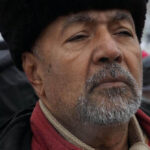The cold-blooded shooting of six Muslims following evening prayers on Jan 29 at a Québec City mosque has, predictably, amplified the acrimonious debate over racism, xenophobia and Islamophobia in Quebec – as the suspect, who also injured a dozen others, is a 27-year-old white Québécois university student.
Calls for an Inquiry Commission on “Systemic Racism in Québec” quickly redoubled and political leaders, responding only piecemeal, did not hesitate to label the mass killing an “act of terrorism” – although “terrorism” is not among the six counts of murder the Québec City police have charged Alexandre Bissonnette with.
Never to miss an opportunity, militant secularists, including Muslim ones, chimed in, accusing political leaders, from Quebec’s Philippe Couillard to Canada’s Justin Trudeau, of “Islamizing Canadian Democracy” – while progressive secularists, Québécois mainly, complained some people were heaping collective guilt on all Québécois for the crime of one individual – a role reversal since all Muslims are usually held responsible for each and every terrorist act committed by Takfiris/Salafis, ISIL/Daesh, Al Qaeda…
Skewed against immigrants
And, as usual, familiar noises came from the English North American media about Quebec being “more racist” than the rest of Canada – and the Quebec National Assembly unanimously condemned a Washington Post article, penned by Vancouver-based J.J. McCullough, saying exactly that, adding Quebec’s “history of anti-Semitism” and “religious bigotry” leads to “more massacres” like this one.
The motion was moved by the opposition Parti Québécois, the party whose ethno-centrist “Charter of Values” bill died on the order paper as the PQ was resoundingly defeated by the Liberals (41% to 25%) in the 2014 elections. The Bloc Québécois proposed a similar motion in Ottawa denouncing the newspaper article as “hateful”, but the House of Commons refused to debate it.
As everywhere else throughout the hegemonic, and increasingly isolationist, West, the playing field, and the rules, remain heavily skewed against immigrants, refugees and all minority communities, yet the ruling communities paint themselves more and more as victims. And this trend has become noticeable in Quebec too in the wake of the Jan 29 shooting.
Re-igniting “reasonable accommodation”
To be fair, a huge mass of Québécois remain committed to an open and plural society, welcoming of diversity and militant in solidarity, as tens of thousands made it clear by attending a public meeting next to a mosque, and in snow and deep sub-zero temperature on Jan 31, in the heavily immigrant neighbourhood of Park Extension in Montreal, home of our very own Little South Asia.
Heart-warming as this demonstration was, it is highly unlikely that the discourse resulting from the Québec City shooting will help in putting to rest the old debate over “reasonable accommodation” in Quebec. If anything, it has re-ignited it. And police and media secrecy and selective leaks have only fed suspicion and distrust.
In the early hours following the massacre, media reports quoting informed sources, even witnesses, suggested there were two masked gunmen, and they shouted the Muslim cry of “Allah o Akbar”. The first-named suspect was a Muslim from Morocco, and stories suggested it may have been a settling of accounts between two neighbouring mosques of rival denominations.
The police then announced the Muslim man was “only a witness” and that the prime suspect was Alexandre Bissonnette – who apparently called police himself and gave himself up on the bridge linking Québec City to Orléans Island. The media then posted the photo of a suited and clean-cut boyish looking Bissonnette – who we were told was known in local social media circles as a pro-Fascist, anti-Feminist, anti-Immigrant, Islamophobic admirer of US President Donald Trump. But the police remains silent – and the media has stopped digging.
Appearing Feb 6 before the Senate committee on national security, RCMP Commissioner Bob Paulson refused to give details of the inquiry into the Québec City shooting. He instead voiced concern that the “caustic tone” of “political discourse” in Canada may contribute to “radicalize criminal extremists”. For its part, CSIS has warned of the recent development “of a Canadian online anti-Islam movement, similar to ones in Europe.”
As in the US and Europe, Quebec and Canada are in the throes of a major global re-balancing of power, marked by a decline of century-old global Western hegemony. The rise of xenophobia, particularly Islamophobia, and of right-wing populism and fascism, is a by-product of this momentous crisis – and the Québec City shooting, like the election of Donald Trump to the White House and the rise of Marine Le Pen in France, are its symptoms.
The trials and traumas are bound to get worse before they get better.
Jooneed Jeeroburkhan, 70, is a journalist, writer, human rights activist, feminist and grandfather living in Montreal. He came to study in Canada, on a Commonwealth scholarship, 50 years ago from Mauritius. He retired from the Montreal daily La Presse in 2009 after 35 years as a reporter and analyst on international affairs, visiting some 60 countries in the process. He published a book of essays, in French, on his native country, in 2010, titled Un autre Maurice est possible (Another Mauritius is Possible).





